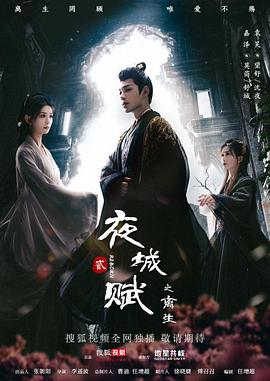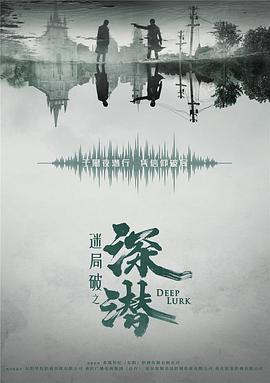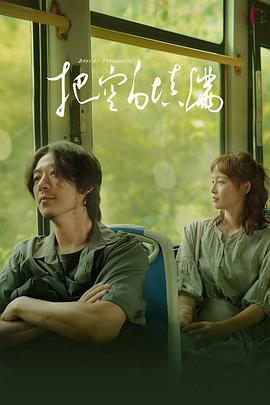Somewhere in the remote region, the war ends. In the midst of ruined cities and houses in the streets, in rural hamlets, everywhere where people still live, are children who have lost their homes and parents. Abandoned, hungry, and in rags, defenseless and humiliated, they wander through the world. Hunger drives them. Little streams of orphans merge into a river which rushes forward and submerges everything in its path. The children do not know any feeling; they know only the world of their enemies. They fight, steal, struggle for a mouthful of food, and violence is merely a means to get it. A gang led by Cahoun finds a refuge in an abandoned castle and encounters an old composer who has voluntarily retired into solitude from a world of hatred, treason, and crime. How can they find a common ground, how can they become mutual friends The castle becomes their hiding place but possibly it will also be their first home which they may organize and must defend. But even for this, the price will be very high. To this simple story, the journalist, writer, poet, scriptwriter, movie director, and film theoretician Béla Balázs applied many years of experience. He and the director Géza Radványi created a work which opened a new postwar chapter in Hungarian film. Surprisingly, this film has not lost any of its impact over the years, especially on a profound philosophical level. That is to say, it is not merely a movie about war; it is not important in what location and in what period of time it takes place. It is a story outside of time about the joyless fate of children who pay dearly for the cruel war games of adults. At the time it was premiered, the movie was enthusiastically received by the critics. The main roles were taken by streetwise boys of a children's group who created their roles improvisationally in close contact with a few professional actors, and in the children's acting their own fresh experience of war's turmoil appears to be reflected. At the same time, their performance fits admirably into the mosaic of a very complex movie language. Balázs's influence revealed itself, above all, in the introductory sequences an air raid on an amusement park, seen in a montage of dramatic situations evoking the last spasms of war, where, undoubtedly, we discern the influence of classical Soviet cinematography. Shooting, the boy's escape, the locomotive's wheels, the shadows of soldiers with submachine guns, the sound of a whistle—the images are linked together in abrupt sequences in which varying shots and expressive sharp sounds are emphasized. A perfectly planned screenplay avoided all elements of sentimentality, time-worn stereotypes of wronged children, romanticism and cheap simplification. The authors succeeded in bridging the perilous dramatic abyss of the metamorphosis of a children's community. Their telling of the story (the scene of pillaging, the assault on the castle, etc) independently introduced some neorealist elements which, at that time, were being propagated in Italy by De Sica, Rossellini, and other film artists. The rebukes of contemporary critics, who called attention to formalism for its own sake have been forgotten. The masterly art of cameraman Barnabás Hegyi gives vitality to the poetic images. His angle shots of the children, his composition of scenes in the castle interior, are a living document of the times, and underline the atmosphere and the characters of the protagonists. The success of the picture was also enhanced by the musical art of composer Dénes Buday who, in tense situations, inserted the theme of the Marseilaise into the movie's structure, as a motive of community unification, as an expression of friendship and the possibility of understanding. Valahol Europaban is the first significant postwar Hungarian film. It originated in a relaxed atmosphere, replete with joy and euphoria, and it includes these elements in order to demonstrate the strength of humanism, tolerance, and friendship. It represents a general condemnation of war anywhere in the world, in any form.
关联推荐
猜你喜欢
 5.0
更新至14集
嘉泽 袁昊 彭雅琦 李哲豪 陈思斯 孙熹之 张梦茹 郭昊钧 薛卉葳 陈露茜 杨简言 刘姝彤
舒城在楚墨两国之战中落败,因为种种原因成为了墨国五皇女莫茴的魂器,失去自我意识的舒城跟随姐姐莫茹回到墨国,面对失而复得的妹妹,莫茹欣喜又忧虑,为了保护亲人和国家她弃医从戎、不断压抑和牺牲自我,甚至为了
5.0
更新至14集
嘉泽 袁昊 彭雅琦 李哲豪 陈思斯 孙熹之 张梦茹 郭昊钧 薛卉葳 陈露茜 杨简言 刘姝彤
舒城在楚墨两国之战中落败,因为种种原因成为了墨国五皇女莫茴的魂器,失去自我意识的舒城跟随姐姐莫茹回到墨国,面对失而复得的妹妹,莫茹欣喜又忧虑,为了保护亲人和国家她弃医从戎、不断压抑和牺牲自我,甚至为了
 7.0
更新至20241121期
黄圣依 杨子 李行亮 麦琳 刘爽 葛夕 胡彦斌 姜逸磊 黄执中 沈奕斐 侯佩岑 武艺
三对面临婚姻危机的夫妻踏上房车之旅,回首相爱的美好,直面破碎的婚姻关系和尖锐的现实问题。同时,观察团以第三视角解读婚姻关系,通过情感经验和专业理论梳理矛盾,将抽象的情感具象化、理论化,寻找根本问题所在
7.0
更新至20241121期
黄圣依 杨子 李行亮 麦琳 刘爽 葛夕 胡彦斌 姜逸磊 黄执中 沈奕斐 侯佩岑 武艺
三对面临婚姻危机的夫妻踏上房车之旅,回首相爱的美好,直面破碎的婚姻关系和尖锐的现实问题。同时,观察团以第三视角解读婚姻关系,通过情感经验和专业理论梳理矛盾,将抽象的情感具象化、理论化,寻找根本问题所在
 6.0
更新至07集
藤原龙也 广濑爱丽丝 柿泽勇人 福本莉子 小宫璃央 成海璃子 迫田孝也 中山裕介 小日向文世 志田未来 吉村界人 工藤美樱 林泰文 清乃あさ姫 山口纱弥加 森下能幸 山田绢绪 神保悟志
本剧讲述了由名为“全领域异常解决室”的调查机关解决用身边的现代事件×最尖端的科学搜查无法查明的“不可解的异常事件”的故事。处理事件的对象,正是“所有的领域”,“神隐”“影子人”“狐狸附身”的“超常
6.0
更新至07集
藤原龙也 广濑爱丽丝 柿泽勇人 福本莉子 小宫璃央 成海璃子 迫田孝也 中山裕介 小日向文世 志田未来 吉村界人 工藤美樱 林泰文 清乃あさ姫 山口纱弥加 森下能幸 山田绢绪 神保悟志
本剧讲述了由名为“全领域异常解决室”的调查机关解决用身边的现代事件×最尖端的科学搜查无法查明的“不可解的异常事件”的故事。处理事件的对象,正是“所有的领域”,“神隐”“影子人”“狐狸附身”的“超常
 9.0
更新至27集
林一 沈月 叶筱玮 天爱 邹廷威 赵海燕 杨紫嫣 章呈赫 房子斌 韩烨 左晓龙 郑玉佳
该剧改编自豆瓣阅读连载小说《失笑》,作者祖乐。 讲述了沪漂脱口秀女演员顾逸(沈月 饰)白天做社畜,晚上登台,没有远大的野心,目标就是让台下所有的观众都能笑。某天突然来了个坐在第一排的男观众梁代文
9.0
更新至27集
林一 沈月 叶筱玮 天爱 邹廷威 赵海燕 杨紫嫣 章呈赫 房子斌 韩烨 左晓龙 郑玉佳
该剧改编自豆瓣阅读连载小说《失笑》,作者祖乐。 讲述了沪漂脱口秀女演员顾逸(沈月 饰)白天做社畜,晚上登台,没有远大的野心,目标就是让台下所有的观众都能笑。某天突然来了个坐在第一排的男观众梁代文
 5.0
更新至07集
井桁弘惠 山下幸辉 犬饲贵丈 樋口日奈 星乃梦奈 植村颯太 西本たける 永田凛 山野海 大城文章
本剧改编自同名漫画,讲述了小野寺真知在曾经就读的高中当老师,她班上来了一位帅气的转学生千叶悠人。悠人是真知在高中时的初恋情人千叶悠一的弟弟,长相与高中时的悠一几乎一模一样。初恋的回忆涌上心头,她在
5.0
更新至07集
井桁弘惠 山下幸辉 犬饲贵丈 樋口日奈 星乃梦奈 植村颯太 西本たける 永田凛 山野海 大城文章
本剧改编自同名漫画,讲述了小野寺真知在曾经就读的高中当老师,她班上来了一位帅气的转学生千叶悠人。悠人是真知在高中时的初恋情人千叶悠一的弟弟,长相与高中时的悠一几乎一模一样。初恋的回忆涌上心头,她在
 3.0
更新至20集
成毅 颖儿 刘欢 侯梦瑶 张天阳 韩承羽 王劲松 王姬 何中华
该剧为献礼题材,讲述了长沙会战之前,一段险象环生却不失热血信仰,致敬无名英雄的谍战传奇,旨在传递中国精神,弘扬中国力量。抗日战争时期,爱国青年云弘深与闻夜鸣在善恶交织的疑云迷雾下,局中设局、步步为
3.0
更新至20集
成毅 颖儿 刘欢 侯梦瑶 张天阳 韩承羽 王劲松 王姬 何中华
该剧为献礼题材,讲述了长沙会战之前,一段险象环生却不失热血信仰,致敬无名英雄的谍战传奇,旨在传递中国精神,弘扬中国力量。抗日战争时期,爱国青年云弘深与闻夜鸣在善恶交织的疑云迷雾下,局中设局、步步为
 8.0
更新至20241121期
火树 刘小怂 王春彧 郭文韬 罗予彤 王初灵 曹恩齐 王易木 李晋晔
博弈推理综艺《森林进化论2》,将邀请各界优秀青年参加,以紧张刺激的推理赛制模式推进,倾力打造沉浸式推理空间,用全新的比赛机制,展现参赛者多维度综合素质,注重挖掘青年能力,体现青年价值,在混沌又千变的局
8.0
更新至20241121期
火树 刘小怂 王春彧 郭文韬 罗予彤 王初灵 曹恩齐 王易木 李晋晔
博弈推理综艺《森林进化论2》,将邀请各界优秀青年参加,以紧张刺激的推理赛制模式推进,倾力打造沉浸式推理空间,用全新的比赛机制,展现参赛者多维度综合素质,注重挖掘青年能力,体现青年价值,在混沌又千变的局








